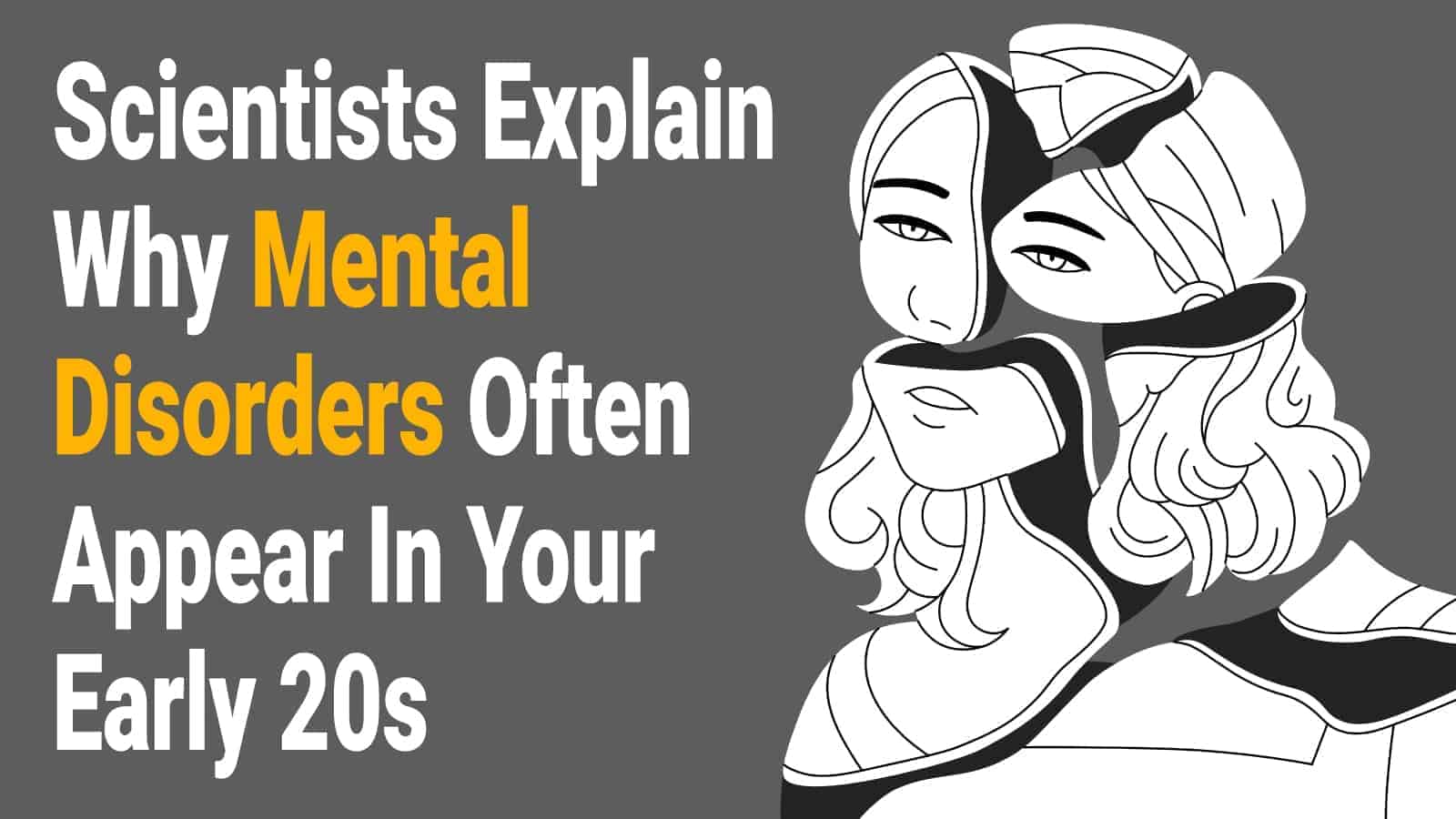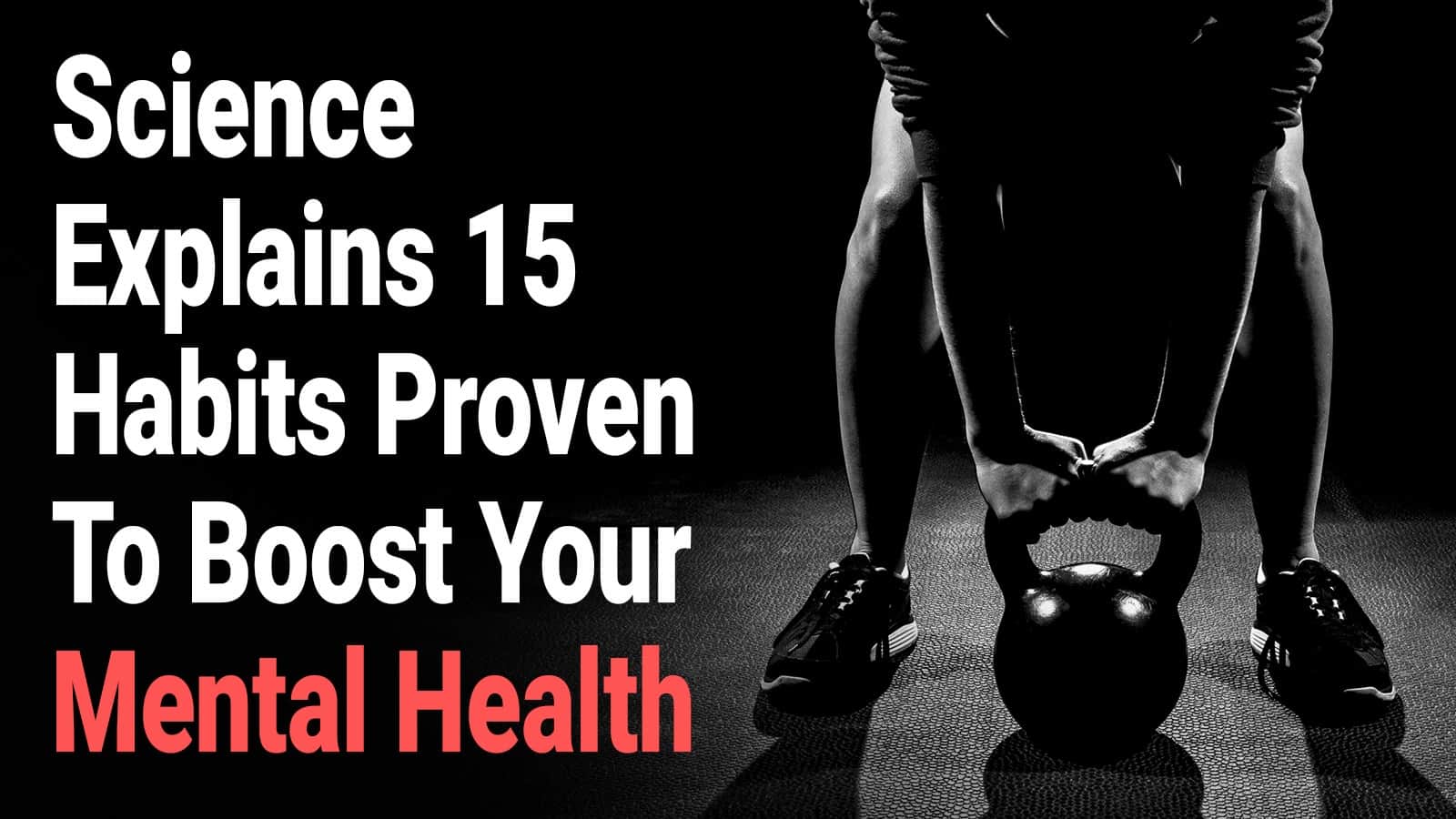One in four people in the world will be affected by mental or neurological disorders at some point in their lives. Around 450 million people currently suffer from such conditions, placing mental disorders among the leading causes of ill-health and disability worldwide. – World Health Organization
Many young adults will suffer from mental health disorders as the stresses of daily life start to hit them full-force. Between applying for and interviewing for jobs, moving out of their parents’ house, paying for all the bills, and trying to find new friends, becoming an adult can feel quite overwhelming. While not everyone in their early 20s will develop a mental disorder, those who already have a predisposition for them may start to feel symptoms as a young adult.
In other words, genetics loads the gun, and environment pulls the trigger.
For adults who had a rough childhood and never sought help for their mental illness, transitioning into adulthood might feel like an overwhelming task. However, why do some people with a predisposition for mental illness not show any signs while others do? We will go over why some people start showing signs of mental illness in their early 20s (and what they can do to manage their symptoms).
Here’s why mental disorders often appear in your early 20s:
Johanna Jarcho, Ph.D., assistant professor in the Department of Psychology at Temple University, answers some of the questions people tend to have about mental disorders. Her work has focused on differences in the brains of mentally healthy people versus those who have anxiety disorders. She explains how social conditions can affect the development of our brains, and how mental disorders should always get treated early on.
Dr. Jarcho says that if you have an anxiety disorder as an adult, there’s a 90% you had it as a teenager as well. She says most people develop anxiety disorders as children and don’t get the proper treatment, so they carry over into adulthood. Either parents don’t know the signs to look for or simply think they will outgrow the symptoms as they get older. However, during adolescence, the brain undergoes enormous changes, and social conditions and environment greatly shape the brain.
Basically, what you’re exposed to as a young adult can alter your brain chemistry and set the stage for mental problems as an adult. For example, if you get bullied in school and don’t learn coping mechanisms, your brain will become “set” in certain patterns that grow difficult to unlearn as an adult.
In young adulthood, we face college, finding internships and jobs, finding a new social circle, and moving out, which can all seem overwhelming if you also have to deal with mental disorders. However, how can we know if our environment or genetics plays a greater role in the development of certain mental disorders?
Genetics or Environment?
Dr. Jarcho explains that some disorders have greater heritability than others. Schizophrenia and bipolar disorder, for example, are more likely to be passed down through genetics. If a parent or sibling has one of these disorders, you’re more likely to develop it yourself. Additionally, your environment can make it even more likely that you’ll have the disorder.
She says that depression and anxiety, on the other hand, have a lower rate of heritability. These are more heavily influenced by your environment, she says. Though we’ve evolved to move away from our parents at a certain age and become independent, our environment in childhood and adolescence can determine how smoothly that transition will go.
Mental disorders are complex in nature, and it’s difficult to know if genetics or environment plays a bigger role in each specific case. However, it’s usually a combination of both that leads to the development of certain disorders.
In a positive, supportive environment, many people will not develop a mental disorder, even if it’s in their DNA. Scientists have discovered that a low-stress family environment lowers the risk of depression in children. For example, even if the child possesses a certain serotonin transporter gene known to play a role in the development of depression, a supportive and positive family can minimize possible depressive symptoms. So, parents who do damage control early on will help their children grow into young adults who have a much easier time adjusting to the stresses of everyday life.
The Importance of Positive Coping Skills for Mental Disorders
Obviously, this doesn’t happen in many cases. For this reason, people have to learn valuable coping skills in order to manage their anxiety, depression, or other mental disorders. However, the rising cost of healthcare puts many young adults between a rock and a hard place, which further proves the importance of getting help early on (while you might still have your parent’s insurance as a safety net).
Also, examining your childhood life can help you gain insight into why you might have developed a mental disorder in the first place. Overprotective, nervous, anxious parents can certainly cause you to develop mental illnesses. Perhaps you do not feel you had the support you needed as a child. On the opposite spectrum, overly passive, uncaring parents can make you feel neglected. This might make you feel unworthy of love or affection. Many factors can compound to cause someone to develop mental disorders, in other words.
Dr. Jarcho stresses that if you get help early on, however, the disorders won’t have as much time to fester. In other words, they won’t grow exacerbated by other life factors. If you get treatment as a teenager, you’ll learn coping skills and new ways of thinking. This can help mitigate any damage already caused by your childhood environment and the genes you inherited.
The key is in preventative care.
Society encourages us to eat right and exercise to avoid getting health problems such as heart disease and diabetes, but we don’t really get sufficient advice when it comes to mental health. We have overlooked or even ignored our mental state for too long. Now we’re paying the price as a society.
We have taken a step in the right direction, though, as more people work to spread the right information and show awareness about mental disorders. Though the stigma surrounding mental health still exists, the public in general seems more knowledgeable and less judgmental about mental disorders. Many people still avoid getting the help they need due to feeling ashamed, though. This can greatly hinder their recovery.
Dr. Jarcho says that too many people rely on online forums and online health tools to diagnose themselves and find support, but she explains that proper treatment is vitally important. Going to a professional with the proper resources will help you get on the right track so that you can feel in control of your life again. However, getting more information about your symptoms online doesn’t hurt; she says to avoid relying fully on the internet for help, though.
She also stresses that overcoming a mental disorder does not happen overnight. It takes a lot of work. You can’t just use an online computer game or app that claims to help anxiety or depression and instantly feel better. There’s a lot of misinformation and false hope out there regarding mental health. The truth is that it takes support, lifestyle changes, and maybe therapy and/or medication to start feeling better.
Don’t give up!
We all have to learn how to cope with our ever-changing world; what works for one person may not work for someone else. As an example, there are dozens of different medicines on the market for anxiety and depression, but they don’t work for everyone. It’s trial and error to get the right combination of medicine for you, but sticking with it is the key.
Many people get tired of trying different methods for their mental health. Know that it’s certainly worth it to find freedom from suffering. Dr. Jarcho goes on to say that mental health is complex. Science is still in its early stages regarding treatment options. She hopes that in 10-15 years, we will be able to pinpoint symptoms earlier and develop more personalized treatment plans.
She says that for many young adults, their symptoms will dissipate. However, others might need ongoing treatment. Going to a therapist or other mental health professional should be part of your general wellness routine. In other words, it should not be something you consider only when you’re in a crisis. As we said before, preventative care is important so that you can tackle problems early on. You don’t want to let them build up over time.
Final thoughts
As you can see, mental disorders have a complex beginning. As such, treatment will vary from person to person. Environment and genetics both play a role in the development of mental illnesses. Still, spotting them early on can help make adulthood much more manageable. If you are suffering, don’t hesitate to get help, even if you feel like it’s too late. It’s never too late to address your mental health, because no one should have to live in misery.
In general, make sure to utilize positive thinking, healthy eating, exercise, and a regular sleep schedule. Also, actively seek out times of relaxation in order to keep your mental health under control.














 Community
Community

